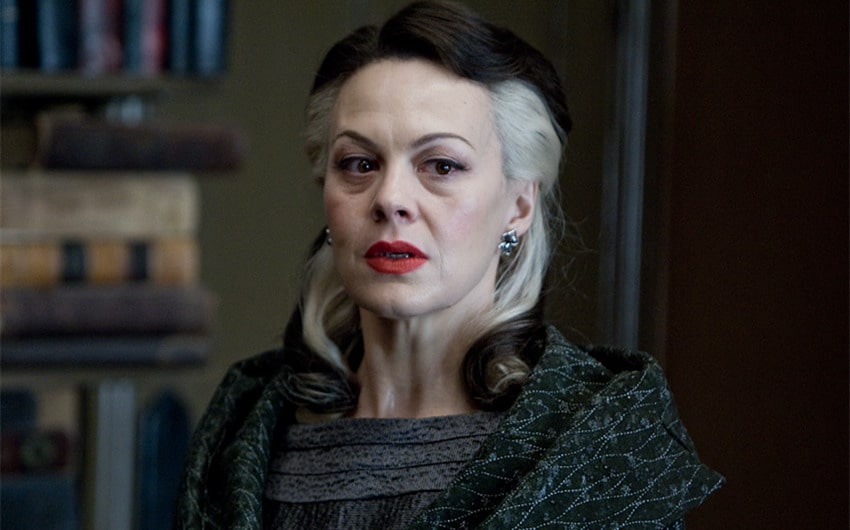Who Is Lucius Malfoy’s Wife? Exploring Narcissa Malfoy’s Story
In the world of Harry Potter, Lucius Malfoy is a well-known character, remembered as a wealthy, proud, and manipulative figure among Voldemort’s supporters. Yet, fans often wonder about the woman who stands by his side. Lucius Malfoy’s wife is Narcissa Malfoy, a character who may not appear as frequently as others but plays a crucial role in shaping events, particularly through her devotion to family. Her presence in the series adds nuance to the Malfoy family dynamic and reveals how love, loyalty, and moral conflict can emerge even within households associated with dark magic.
Who Is Narcissa Malfoy?
Narcissa Malfoy, born Narcissa Black, comes from one of the most prominent pure-blood wizarding families in the Harry Potter universe. The Black family is known for its long-standing belief in blood purity and its disdain for Muggles and half-bloods. Narcissa grew up alongside her sisters, Andromeda and Bellatrix, each of whom took very different paths in life. While Bellatrix Lestrange became one of Voldemort’s most fanatical followers, Andromeda married a Muggle-born wizard and was disowned from the family. Narcissa chose a path of loyalty to tradition by marrying Lucius Malfoy, aligning herself with one of the wealthiest and most influential pure-blood families in wizarding Britain.
Narcissa’s upbringing in the Black household shaped her values and outlook. The Black family motto, “Toujours Pur” (Always Pure), captures the worldview she inherited, one that prized pure-blood status above all. However, unlike her sister Bellatrix, Narcissa is not portrayed as cruel or sadistic. Instead, she is characterized by elegance, ambition, and above all else, her dedication to her immediate family.
Marriage to Lucius Malfoy
Narcissa’s marriage to Lucius Malfoy united two powerful wizarding families. Together, they embodied the ideals of pure-blood supremacy, wealth, and social influence. The Malfoys lived in Malfoy Manor, a lavish estate that symbolized their status and provided a gathering place for influential dark wizards.
Lucius Malfoy’s wife shares in his pride and elitism, often looking down on those she deems inferior. She represents the refined but cold exterior of the Malfoy household. Yet, her marriage to Lucius also reveals the dual nature of their partnership: while Lucius sought influence in political and dark magical circles, Narcissa focused on preserving her family’s power and, more importantly, protecting their son Draco.
Their relationship is not described in terms of passion or romance but rather as a strategic and functional alliance that upholds the Malfoy family legacy. Still, their unity as a couple, particularly in times of crisis, demonstrates a shared commitment to family survival above ideology.
Motherhood and Her Love for Draco
If there is one trait that defines Narcissa Malfoy more than any other, it is her love for her son, Draco. Unlike Bellatrix, who devoted her life to serving Voldemort, Narcissa’s loyalty is first and foremost to Draco’s safety. Her protective instincts are made clear throughout the later books, particularly during the events of Harry Potter and the Half-Blood Prince and Harry Potter and the Deathly Hallows.
In Half-Blood Prince, when Voldemort assigns Draco the dangerous task of killing Albus Dumbledore, Narcissa is overcome with fear for her son. Desperate to protect him, she turns to Severus Snape and begs him to make the Unbreakable Vow, ensuring that he will assist Draco and, if necessary, complete the task in his place. This moment shows that Narcissa is willing to put aside pride and even betray the spirit of Voldemort’s trust to shield her child from harm.
Her devotion continues in Deathly Hallows, when Draco’s safety becomes her overriding concern. At the Battle of Hogwarts, Narcissa makes a defining choice: she lies to Voldemort. When asked to confirm whether Harry Potter is dead, she checks on him but uses the opportunity to ask about Draco’s whereabouts. Upon learning that her son is alive inside the castle, she tells Voldemort that Harry is dead. This lie allows Harry to survive and ultimately leads to Voldemort’s downfall. In this moment, Narcissa demonstrates that her maternal love outweighs any allegiance to Voldemort or his cause.
Narcissa’s Role in the Second Wizarding War
Although Narcissa Malfoy never becomes a Death Eater like her husband or sister, her role in the Second Wizarding War is pivotal. She is often present during major events, quietly observing but also making choices that significantly influence the outcome. Her decision to protect Draco over serving Voldemort highlights the limits of her loyalty to the Dark Lord.
In Deathly Hallows, when the Malfoys are hosting Voldemort and his followers at Malfoy Manor, Narcissa’s discomfort is evident. The once-proud household becomes a place of fear and submission. While Lucius appears increasingly desperate and broken under Voldemort’s rule, Narcissa remains composed but focused on ensuring her family’s survival. Her pragmatism and ability to prioritize family over ideology ultimately distinguish her from fanatical characters like Bellatrix.
Narcissa’s actions at the Battle of Hogwarts demonstrate her quiet courage. By lying to Voldemort, she shifts the course of the conflict, ultimately contributing to Harry’s ability to defeat him. While she does not fight openly or join the battle directly, her subtle intervention is one of the most consequential decisions in the series.
Why Narcissa Malfoy Is a Complex Character
Lucius Malfoy’s wife is a study in moral grayness within the Harry Potter series. While she embodies the elitism and prejudice of pure-blood culture, she is not driven by cruelty or a desire for domination like other antagonists. Instead, her motivation is personal and deeply human: the protection of her child and family.
This complexity makes her one of the more relatable figures on the “dark” side of the story. Readers may not agree with her values or prejudices, but her love for Draco provides a point of connection. Unlike Lucius, who sought influence and power through Voldemort, Narcissa demonstrates that even within the darkest families, love and loyalty can drive decisions that change history.
Her final portrayal in the series is not as an enemy but as a mother who, in her own way, helped bring about Voldemort’s defeat. Her quiet defiance shows that not all battles are fought with wands; some are fought through choices of conscience and loyalty.
Featured Image Source: harrypotter.com






